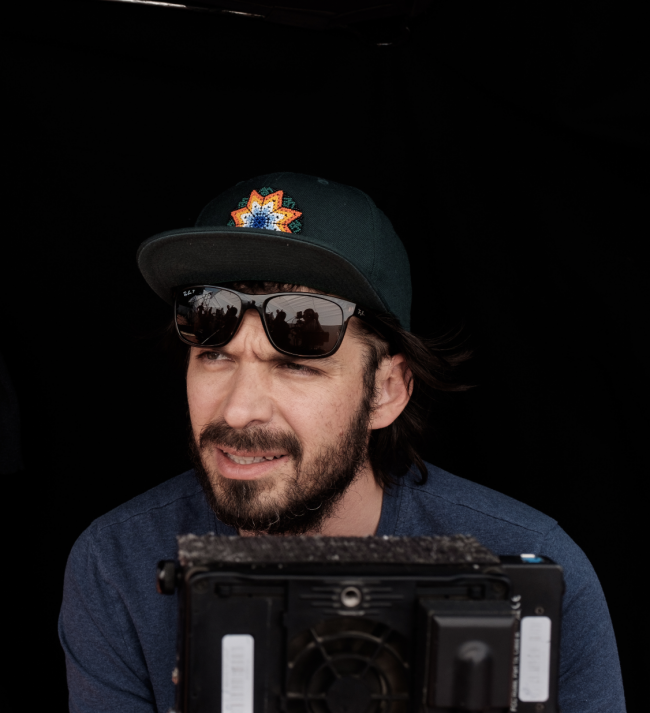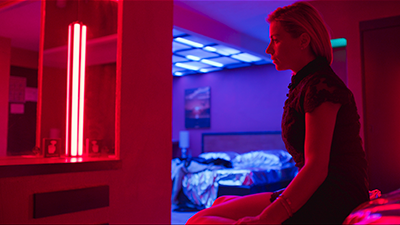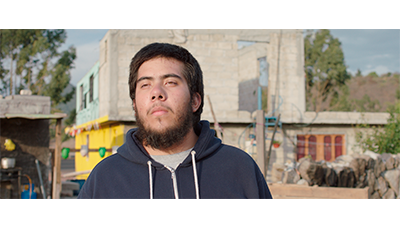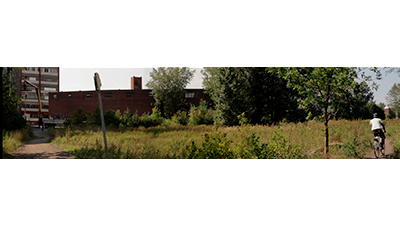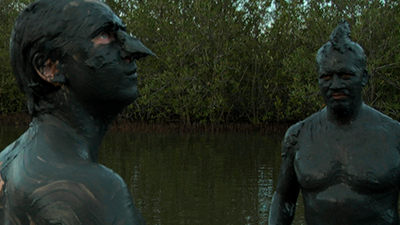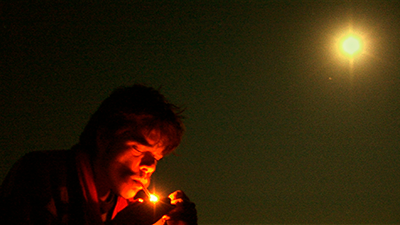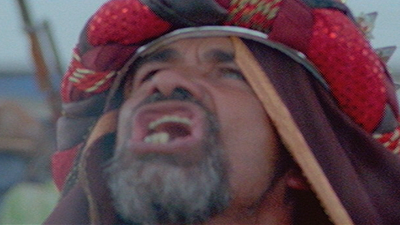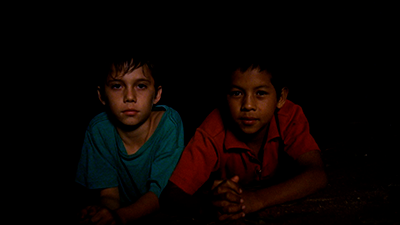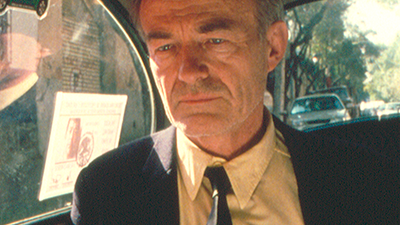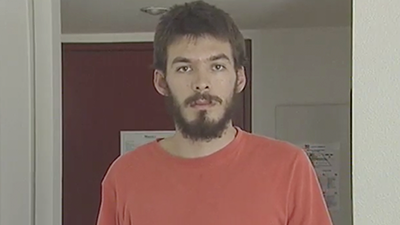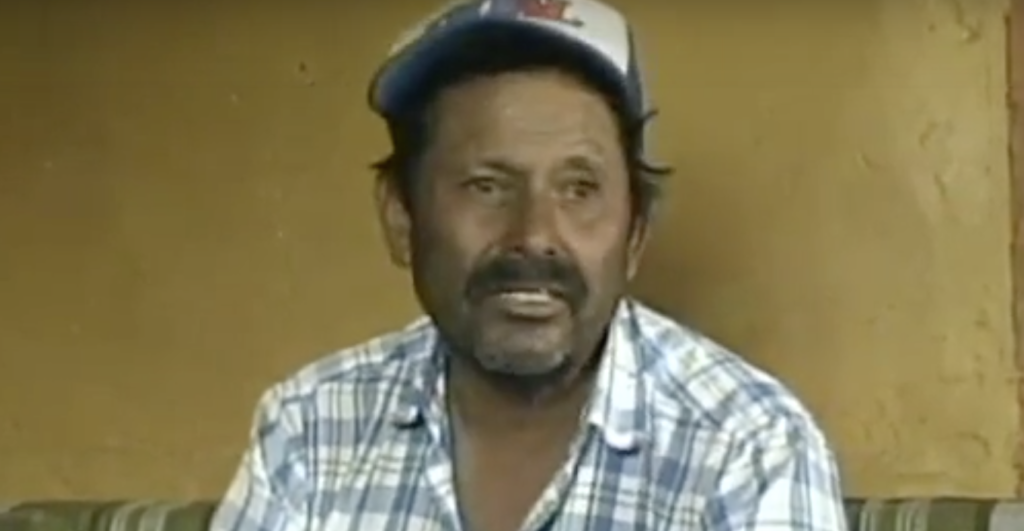Bio
In the last decade of Mexico’s resurgence as an international cinematic power, one of its most fascinating emerging independent filmmakers has been Matías Meyer. Crafting captivating films that evoke unfamiliar geographies and existentially charged engagements with duration and time, the award-winning filmmaker has developed a personal vernacular that speaks compellingly beyond generic convention and the present moment. Educated at the Sorbonne in Paris and at Mexico’s Centro de Capacitación Cinematográfica, and presently working in both Mexico City and Montreal, Meyer typically produces work with international partners, and participates regularly at international festivals (Locarno, Stockholm, Rotterdam). In this milieu, he offers refracted but precise visions, mostly of Mexico, that engage vigorously with global film traditions, eschewing exoticism for cinematic formulations of the ineffable. His four feature films to date display a familiar signature and a compelling thematic center, expressing the vastness of solitude, and the epiphanies and purifications that occur on journeys in search of sanctuary, rapture or release. The Archive is pleased to host Matías Meyer for this first retrospective of his work, also representing Meyer’s first time presenting his work in Los Angeles.(Shannon Kelley)
Matías Meyer Rojas, was born on December 16, 1979, of a Mexican mother and a French father naturalized Mexican, both historians. From 1999 to 2006 he studied directing at the Cinematographic Training Center. It is there that he directed the short fiction film The Passenger, winner at the second Morelia Film Festival in 2004 and presented at the Critics' Week at the Cannes Festival in 2005. In 2006 he graduated from the Center for Cinematographic Training with the short film Green, which is selected at the Clermont-Ferrand festival.Leaving the CCC, he shoots his first feature film Wadley , in just 5 days, without a script and with only one actor. The film, a hybrid of documentary and fiction, premiered worldwide in 2008 at the Rotterdam festival and the same year, at the FICCO in Mexico City, where it received a mention for the best Mexican documentary. Then he filmed his second feature film The Cramp, an adaptation of the homonymous story by the Nobel prize winner for literature Gao Xingjian, which premiered in competition at the Morelia Film Festival in 2009 and later the Rotterdam festival 2010. in Rotterdam in 2010. The Last Christeros, a Western with peasant actors, was premiered at the Toronto film festival in 2011 and was nominated in 2013 for eight Ariels including best film, best director and best adapted screenplay. He also received eight national and international awards , including best Latin American director of the year at the Cinema Tropical awards. The MOMA in New York acquires a 35mm print of the film for its collection. His experimental short film The Field of Possibles wins two awards at FICUNAM 2015 and is screened at the New Directors New Films festival at MOMA in NY. Yo , his fourth feature film by him, adapted from the homonymous story by the Nobel Prize for Literature J.M.G. Le Clézio is presented in competition at the 2015 Morelia Film Festival where he wins the award for best film and best actor.. The same year at the Havana Festival, Yo Yo won the choral award for best sound. And in 2016 he is nominated for best adapted screenplay at the Ariels. In June 2016, the University of California at Los Angeles (UCLA) dedicated its first retrospective to him.In the fall of 2019 he premieres his fifth feature film Modern Loves in which he explores the borders between auteur cinema and commercial cinema. He is currently a fellow of the National System of Creators (2020-2023).
Matías Meyer studied film direction at the Cinematographic Training Center (CCC) in Mexico City. “Modern Loves” is his fifth feature film as director, producer and screenwriter, preceded by “Yo” (2015), “The Last Christeros” (2011), “The Cramp” (2009) and “Wadley” (2008). His films have been programed and awarded in festivals like Toronto, Rotterdam, Locarno and Morelia. He is currently a scholar of the National Creator’s System (2020-2023).
24 hours in the intense Mexico City, seven plots intertwine: a surprising death, an old poet losing his memory, two distanced brothers, a couple of ex-lovers afraid to engage again, a daughter that finally shows who she really is, a scientist who suffers a conversion disorder and a pregnant women that wants to give birth at home. All these stories are linked by strong women and a patriarchy falling apart.
Winner of the jury award for Best Mexican Feature at the 2015 Morelia International Film Festival, Yo presents a young man of indeterminate age and apparent mental incapacity, living with his mother in a seemingly suspended childhood. A chance meeting with a young girl sets in motion a series of encounters that will spur his transformation to adulthood, for better or worse. Infused with an equal sense of dread and wonder, the film equivocally frames the epic human journey of emotional maturation.
An “impossible day” spent in a silent and unimpressive corner of Montreal ushers in dramatic and spellbinding changes, in this meditative, experimental short.
This solemnly beautiful feature tracks the migration of a group of devout Christian pilgrims, persecuted under the anti-religious edicts of an early 20th-century Mexican regime and determined to resist, or at least survive, rather than surrender their faith. Their silent tramping through woods and brush, enhanced by exquisite cinematography and sound and indelible imagery, solemnizes their fight as a sacred ritual in itself.
Julien, a disaffected young Frenchman, disembarks in the coastal city of Chacahua in southern Mexico. Clearly burdened by a ponderous spiritual weight, he befriends a local fisherman who shows him the area, summoning sensations that engage the spirits of this visitor. The gentle climax, revealing Julien’s identity and displaying his spirit in blossom, completes the film’s spare narrative arc with remarkable grace.
In filmmaker Matías Meyer’s deceptively simple first feature, a young backpacker trudges into the wilderness, the camera attentively registering incidentals of atmosphere, and behavior, as duration becomes increasingly relative. The mission, to take some peyote, leads to another question: will the adventurer now find his way home? The film’s hypnotic spell is perfectly summed up by the filmmaker: “when you go out and observe, magical things happen.”
Filmmaker Matías Meyer’s documentary, produced as a student in Mexico, profiles an annual ritual among devotees of Saint John the Baptist, who have staged a ritual, symbolic battle between Moors and Christians each August for 150 years. Embodying the characters they etch in abstract time and real space, the participants also reveal dimensions of their own lives that add life and meaning to the pitched battle.
A friendship enjoyed by two boys of different social strata won’t be tolerated by their older brothers.
Winner of the Golden Sun Award for Best Short Film at the 2005 Biarritz International Festival of Latin American Cinema, and the Award for Best Short Film at the 2004 Morelia International Film Festival. A man hires a taxi driver to be his companion as he creates his own perfect day.
An intimate essay about identity and cinematographic image.
A documentary about San Vicente de Chupaderos, a set built outside Durango, Mexico, where many a Hollywood action film fabricated the Myth of the lawless West. Starring John Wayne and the recollections of Durango vaqueros who remember the silver screen days of the open-air set, now a ghost town of facades. The dignity and resilience of these real life characters is contrasted with screen sterotypes of “The Mexican” and set against the barren landscape of the now defunct set.

